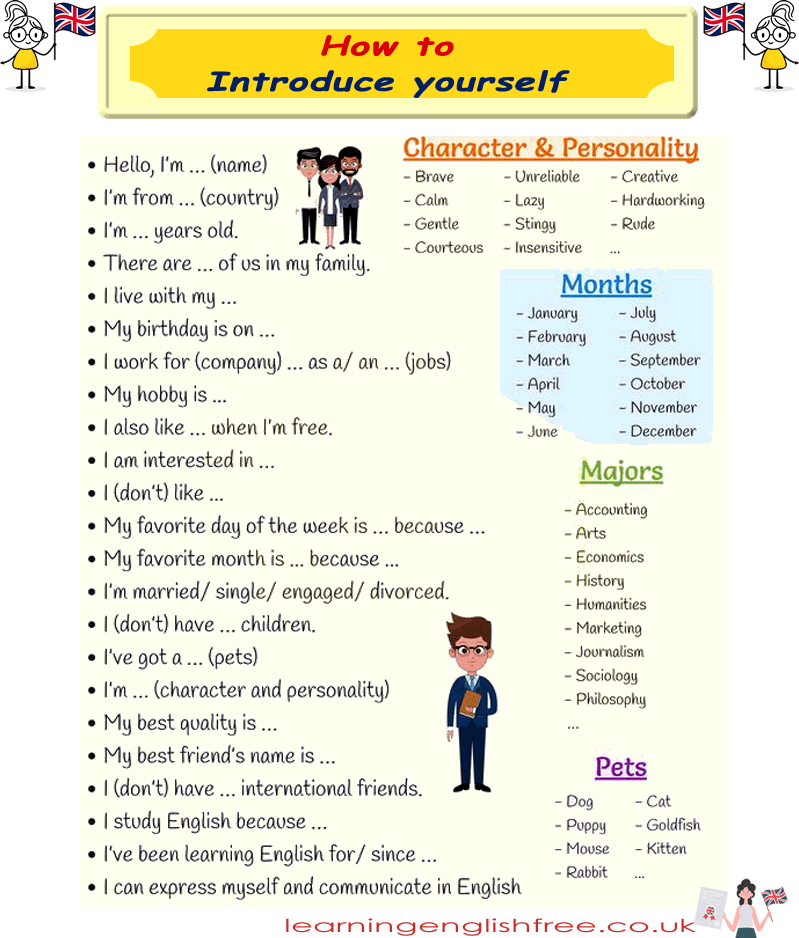

Perfecting the Art of Introductions with Practical Examples
Introducing yourself and others is a fundamental social skill in English. Whether you're at a networking event, a social gathering, or a business meeting, knowing the right phrases for introductions can make a significant difference in your interactions. This lesson will guide you through various phrases used for introductions, explaining when and how to use them effectively.
Self-Introduction Phrases:
- "I just wanted to introduce myself. I'm [your name]."
- Example: At a conference, you approach a group and say, "I just wanted to introduce myself. I'm Alex."
- "I don't think we've met before. My name's [your name]."
- Example: At a neighbour's party, you say to someone, "I don't think we've met before. My name's Sarah."
Introducing Others:
- "This is [name]."
- Example: Bringing a friend to a meetup, you say, "Everyone, this is John."
- "I'd like you to meet [name]."
- Example: At a business meeting, "Mr. Smith, I'd like you to meet our team lead, Ms. Johnson."
- "Have you met [name]?"
- Example: At a family gathering, "Have you met my cousin, Emily?"
- "I'd like to introduce you to [name]."
- Example: At an office event, "I'd like to introduce you to our CEO, Mr. Thompson."
Responses to Introductions:
- "Nice to meet you."
- Example: After being introduced, you shake hands and say, "Nice to meet you."
- "It's a pleasure to meet you."
- Example: At a formal dinner, "It's a pleasure to meet you, Dr. Allen."
- "Likewise."
- Example: In response to "Nice to meet you," you reply, "Likewise."
- "And you."
- Example: When someone says, "Pleased to meet you," you respond with, "And you."
Summary and Takeaways
Learning to introduce yourself in English is more than just a lesson in vocabulary; it's an essential skill that opens up a world of opportunities for personal and professional growth. This lesson has equipped you with a range of phrases and vocabulary to help you create a positive first impression, whether you're engaging in casual conversations, attending networking events, or simply making new friends.
Key Strategies for Effective Self-Introduction:
-
Practice Regularly: The more you practice your self-introduction, the more natural it will become. Try rehearsing in front of a mirror or recording yourself to gain confidence in your delivery.
-
Personalize Your Introduction: While it's helpful to have standard phrases, adding personal touches about your interests, hobbies, and experiences makes your introduction more engaging and memorable.
-
Be Mindful of Your Audience: Tailor your introduction based on who you're speaking to. For instance, you might focus more on professional details in a job interview and on personal interests in a social setting.
-
Use Visual Aids: Creating flashcards with key phrases can help reinforce your learning. Drawing mind maps that connect different parts of your introduction can also aid in memorization.
-
Engage in Real-Life Practice: The best way to master self-introduction is by using it in real-life situations. Engage with English speakers at every opportunity, and don't be afraid to introduce yourself to new people.
Remember, the goal of introducing yourself is not just to provide basic information but to start building a connection with the person you're speaking to. Your introduction is the first step in sharing your world with others, so make it count!
We encourage you to keep practising and exploring new ways to express yourself. For more lessons and tips, visit our Facebook page at www.facebook.com/learningenglishfree.co.uk. Join our community and share your experiences with fellow learners. Together, we can make learning English an exciting and rewarding journey.
